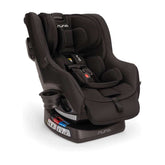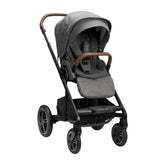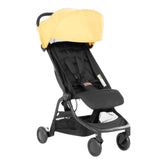How to Handle Baby Eczema: Tips for Soothing Irritated Skin

Baby eczema, or atopic dermatitis, is a common skin condition that affects many infants and toddlers. It can cause significant discomfort due to itchy, inflamed, and dry skin. Managing baby eczema requires a comprehensive approach to keep the skin moisturized, avoid irritants, and promote healing. Today, we’re offering some valuable tips for soothing your baby’s irritated skin.
Understanding Baby Eczema: Causes and Triggers
Before diving into treatment strategies, it’s important to understand what baby eczema is and what causes it. Baby eczema is a chronic condition characterized by patches of dry, itchy, and inflamed skin. It often appears on the cheeks, scalp, and extremities but can occur anywhere on the body.
The exact cause of eczema is unknown, but it is believed to be a combination of genetic and environmental factors. Babies with a family history of eczema, asthma, or allergies are more likely to develop the condition. Common triggers include:
- Dry skin: Lack of moisture can lead to flare-ups.
- Irritants: Soaps, shampoos, detergents, and fragrances can aggravate eczema.
- Allergens: Dust mites, pet dander, pollen, and certain foods may trigger symptoms.
- Heat and sweat: Overheating can exacerbate eczema.
- Stress: Emotional stress can also trigger or worsen symptoms.

Moisturize & Protect Baby's Skin
Keeping your baby's skin well-moisturized is essential in managing eczema. Moisturizers help to restore the skin barrier, prevent water loss, and reduce inflammation.
Choosing the Right Moisturizer
Opt for fragrance-free and dye-free products specifically designed for sensitive skin. Look for creams and ointments rather than lotions, as they are thicker and more effective in trapping moisture. Ingredients like ceramides and hyaluronic acid can be beneficial when used appropriately.
How to Apply Moisturizers
- Timing is key: Apply moisturizer immediately after bathing when the skin is still damp to lock in moisture.
- Frequency: Moisturize at least twice a day or more frequently if the skin appears dry.
- Technique: Use gentle, circular motions to avoid further irritation.

Baby Eczema Cream: A Soothing Solution
Specialized baby eczema creams can provide significant relief by addressing the specific needs of eczema-prone skin.
What to Look for in an Eczema Cream
When selecting a baby eczema cream, consider products that contain the following:
- Colloidal Oatmeal: Known for its soothing properties, it helps to relieve itching and irritation.
- Corticosteroids: Mild corticosteroid creams, like hydrocortisone, can reduce inflammation during flare-ups. Always consult a pediatrician before use.
- Natural Oils: Ingredients like coconut oil, sunflower oil, and shea butter can help soothe and moisturize the skin.
ANB Baby features a full range of baby skin care products to help protect and moisturize your little one’s skin.

Hypoallergenic Laundry Detergent: Your Secret Weapon in the Battle Against Baby Eczema
Choosing the right laundry detergent is vital in preventing eczema flare-ups. Regular detergents often contain harsh chemicals and fragrances that can irritate sensitive skin.
Benefits of Hypoallergenic Laundry Detergent
- Gentle on Skin: Free from dyes, fragrances, and other irritants that can cause eczema flare-ups.
- Effective Cleaning: Cleans clothes without leaving residue that could irritate the skin15.
- Environmentally Friendly: Often biodegradable and free from phosphates and other harmful chemicals.
Tips for Using Hypoallergenic Detergent
- Double Rinse: Ensure that all detergent is thoroughly rinsed out of clothes to prevent skin irritation.
- Wash New Clothes: Always wash new clothes before wearing them to remove any potential irritants.
- Separate Wash: Consider washing your baby’s clothes separately from the rest of the household laundry to avoid cross-contamination with harsher detergents.

Other Tips to Help Heal Baby’s Skin
In addition to moisturizing and using appropriate skincare products, several other strategies can help manage and heal baby eczema.
Bathing Tips
- Lukewarm Water: Use lukewarm water for baths to avoid further drying out the skin.
- Gentle Cleansers: Use mild, soap-free cleansers designed for sensitive skin.
- Short Baths: Limit baths to 10-15 minutes to prevent skin from drying out.
Clothing Choices
- Soft Fabrics: Dress your baby in soft, breathable fabrics like cotton to reduce irritation.
- Layering: Avoid overdressing to prevent overheating and sweating, which can trigger eczema.
- Seamless Clothing: Look for clothing with flat seams or no seams to minimize friction against the skin.
Environmental Control
- Humidifiers: Use a humidifier in your baby's room to maintain optimal humidity levels and prevent dry skin. ANB Baby offers a range of humidifiers to help parents manage humidity levels.
- Temperature Control: Keep the room at a comfortable, consistent temperature to avoid extremes that can trigger flare-ups.
- Dust Management: Regularly clean and vacuum to minimize dust mites and other allergens. You can find a selection of high-quality air purifiers at ANB Baby.
Dietary Considerations
While not all babies with eczema have food allergies, some may react to certain foods. Common culprits include dairy, eggs, soy, wheat, and nuts. Consult a pediatrician before making any dietary changes.

Wrapping Up: Tender Care for Tiny Tots
Managing baby eczema can be challenging, but with the right approach and products, you can help soothe your baby’s irritated skin and reduce the frequency and severity of flare-ups. Moisturizing regularly, using appropriate eczema creams, and choosing hypoallergenic laundry detergent are critical steps in managing this condition. Additionally, paying attention to bathing practices, clothing choices, and environmental factors can further support your baby’s skin health.
For gentle and effective baby skincare products, visit ANB Baby. We offer a wide range of products designed to care for your baby’s delicate skin, helping you provide the best possible care for your little one.









